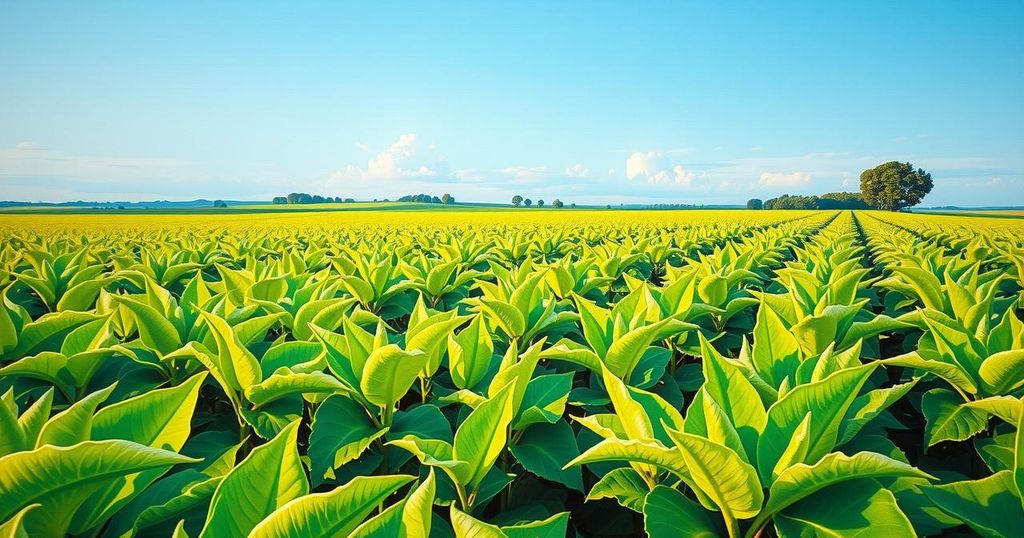Bolivia’s agriculture faces a severe fuel shortage that threatens crop harvests, particularly in Santa Cruz. The crisis originates from dwindling foreign currency reserves and local gas production. Farmers, including Joel Eizaguirre and Jaime Fernando Hernandez, warn that inadequate fuel could lead to significant food production losses, prompting government efforts to stabilize the situation.
In Bolivia’s Santa Cruz region, farmers are facing significant challenges due to an escalating fuel shortage that jeopardizes their crop harvests. This situation raises concerns for the nation, where agriculture is increasingly vital to the economy. The origins of the fuel crisis are linked to a decline in foreign currency reserves over the last decade and a sharp decrease in local gas production, pushing the situation to a critical point.
The Bolivian government, led by President Luis Arce, is grappling with the implications of this fuel scarcity, attempting to stabilize fuel prices through subsidies. Joel Eizaguirre, a soybean producer, expressed concern over the issue, stating, “If there is no fuel, producers will go deeper into debt,” underscoring the broader impact on the farming community.
Jaime Fernando Hernandez, the manager of oilseed and wheat group ANAPO, warned that insufficient diesel for agricultural machinery could result in severe losses of crops such as soy, corn, and sorghum. This decline would have a cascading effect on the food supply, affecting livestock and food production. He commented, “The impact in terms of productivity and food production could be truly catastrophic.”
In response to the ongoing crisis, the Bolivian government is attempting to alleviate fuel shortages by increasing imports, including utilizing cryptocurrency by the state energy company YPFB for fuel transactions. Eizaguirre has indicated a willingness to pay elevated prices, noting, “Personally, I’d rather have fuel cost 11 bolivianos than not have enough fuel to harvest our grain.” This perspective highlights the dire circumstances faced by farmers as they prepare for imminent planting seasons.
The fuel shortage in Bolivia poses a significant threat to the country’s agricultural sector, impacting farmers’ ability to conduct harvests and maintain food production. The government is under pressure to manage the crisis effectively, with stakeholders emphasizing the necessity of ensuring fuel availability. As farmers like Eizaguirre express their readiness to pay higher fuel prices for adequate supply, the situation underscores the critical balance between cost and crop viability.
Original Source: money.usnews.com




